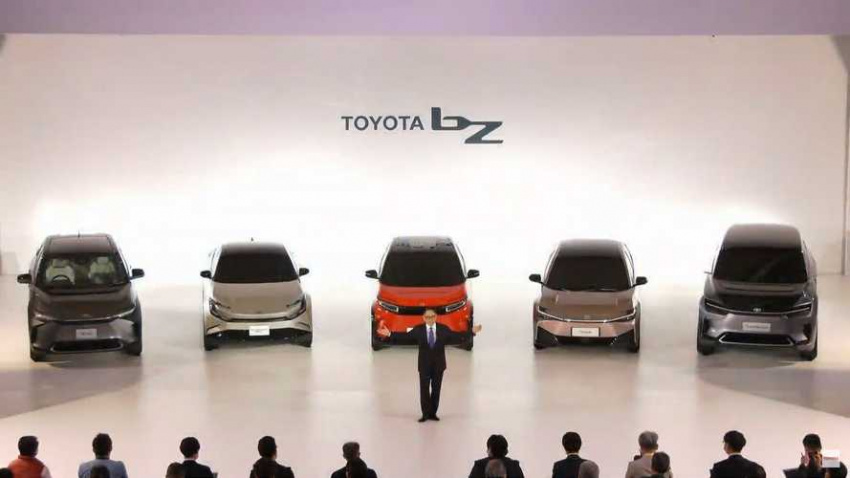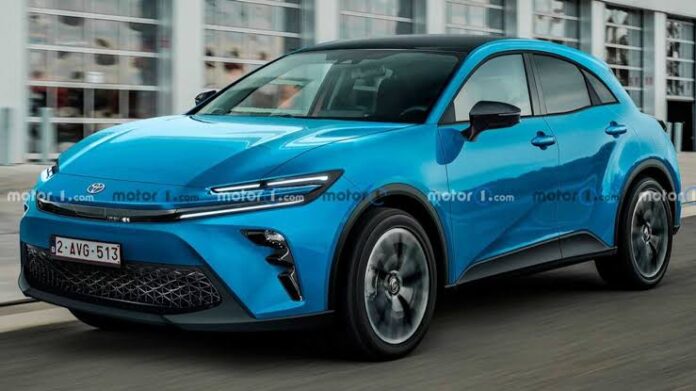It will reportedly have a large 70+ kWh battery pack.
Toyota hosted a large press event in December of last year to preview its future electric vehicle intentions (see the related links and gallery below). A total of 15 electric vehicles currently in development by Toyota and Lexus, including a compact hatchback/crossover, were displayed in prototype form. This high-riding prototype transforms into a production vehicle in a new rendering provided by our pals at Motor.es.
The new zero-emissions hatch, initially dubbed the bZ3, is shaped like a slightly elevated five-door car with crossover-inspired changes and a muscular side profile, and is currently in the early phases of development. You might think of it as a cross between the current CH-R and the Corolla Hatchback to some extent, as the EV appears to be smaller than the Corolla but larger than the crossover.
The bZ3 will apparently be available with one or two electric motors, based on Toyota’s e-TNGA EV design. The most powerful version will likely have a dual-motor setup with more than 200 horsepower (149 kilowatts) and all-wheel drive, pitting it against the planned Volkswagen ID.3 GTX electric hot hatch. However, Motor.es believes that a large 71.4 kWh battery pack may be added in the bZ3, giving it a range of more than 310 miles between charges (500 kilometers).
Read More: Toyota Will Introduce Two New Vehicles In India: A New SUV …
Read More: 2022 Toyota Urban Cruiser Launch Expected By Mid 2022

Toyota is planning various electric vehicles, including the bZ3. The Japanese automaker also previewed a huge seven-seat electric SUV, an electric Tacoma truck, a sports vehicle, and an ideological successor to the FJ Cruiser at the December press presentation. Lexus previewed the RZ, a four-seater electric convertible, and a swoopy waggon, which made its official appearance recently.
By the end of this decade, Toyota and Lexus want to launch 30 new electric vehicles and will invest $70 billion in research and development. The two companies want to achieve full carbon neutrality by the middle of the next decade. Lexus aims to become an EV-only brand by 2030 in Europe, China, and the United States.
Source: Motor.es


